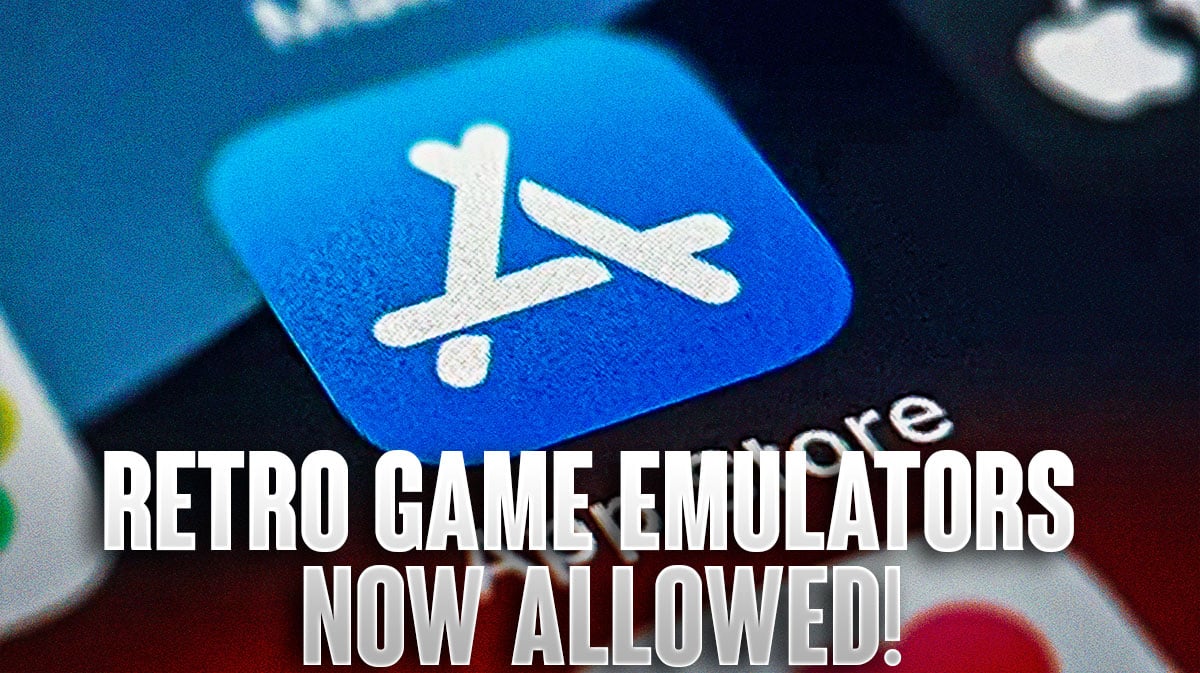In a landmark decision announced on Friday, Apple has officially opened its doors to retro game emulators on the App Store, marking a significant departure from its historically stringent content restrictions. This move is poised to transform the digital landscape for iPhone users worldwide, granting them access to an array of classic games that have shaped the fabric of digital entertainment over the past decades.
For years, the absence of emulators from the App Store has been a point of contention among gaming enthusiasts who harbor a deep appreciation for the nostalgia of console gaming. Apple's latest policy revision addresses this demand, underscoring the company's recognition of the cultural and historical importance of retro games. By integrating emulators into its App Store, Apple is not only expanding its content catalog but also enhancing the user experience, offering a trip down memory lane to the golden era of gaming.
Apple's Emulator Inclusion Amidst Broader Policy Revamp
However, Apple's welcome mat for emulators comes with a caveat aimed at preserving the integrity of its platform. Developers keen on bringing their emulators to the App Store are required to navigate a tightrope of legal stipulations, ensuring their offerings do not infringe on copyright laws or distribute pirated content. This emphasis on legal compliance is a testament to Apple's commitment to maintaining a reputable marketplace that respects intellectual property rights and fosters a lawful digital environment.
This strategic pivot is part of a broader series of updates to Apple's App Store guidelines, reflecting a nuanced approach to platform management amid evolving technological and regulatory landscapes. Alongside the emulator green light, Apple has also revised its stance on so-called super apps, such as WeChat. New guidelines stipulate that any mini-games or applications housed within these ecosystems must rely on HTML5 technology, eschewing native app frameworks. This adjustment is aligned with Apple's overarching objective to ensure that apps deliver a seamless and compatible user experience across a multitude of devices.
Apple announced that eligible game emulators can soon be available on the App Store
Via: The Verge pic.twitter.com/m4u8sqlH65
— Dexerto (@Dexerto) April 6, 2024
These policy overhauls arrive at a critical juncture for Apple, as the tech giant navigates the choppy waters of legal and regulatory scrutiny. The company is currently embroiled in an antitrust lawsuit in the United States, with allegations pointing to anti-competitive practices tied to its App Store operations. Simultaneously, pressures from the European Commission have catalyzed alterations in how Apple manages in-app purchases and external content links, particularly within the European Union. These changes are indicative of a broader effort by Apple to recalibrate its policy framework in response to external challenges, striving to balance innovation and competition with legal and security imperatives.
Apple's Strategic Shift Reshapes The App Landscape
The implications of Apple's revised policies are far-reaching, extending beyond the immediate realm of app developers and gaming aficionados. By embracing retro game emulators, Apple is not merely diversifying its App Store offerings but also making a deliberate foray into a niche market with a fervent fanbase. This decision has the potential to redefine the digital gaming experience, bridging the gap between the past and present of gaming culture.
Moreover, the updated guidelines pertaining to super apps and the adoption of HTML5 for mini-applications underscore Apple's dedication to optimizing the technical robustness and user-friendliness of apps on its platform. These measures are indicative of a strategic vision that prioritizes the user experience while adhering to the highest standards of legal and operational compliance.
In essence, Apple's latest policy revisions are a reflection of the company's ongoing efforts to strike a delicate balance between fostering a vibrant and competitive digital ecosystem and ensuring a secure, lawful, and user-centric environment. As the App Store continues to evolve, these changes are poised to shape the future trajectory of digital content consumption, offering a glimpse into a future where nostalgia and innovation coalesce seamlessly.
For more gaming news, visit ClutchPoints Gaming



















